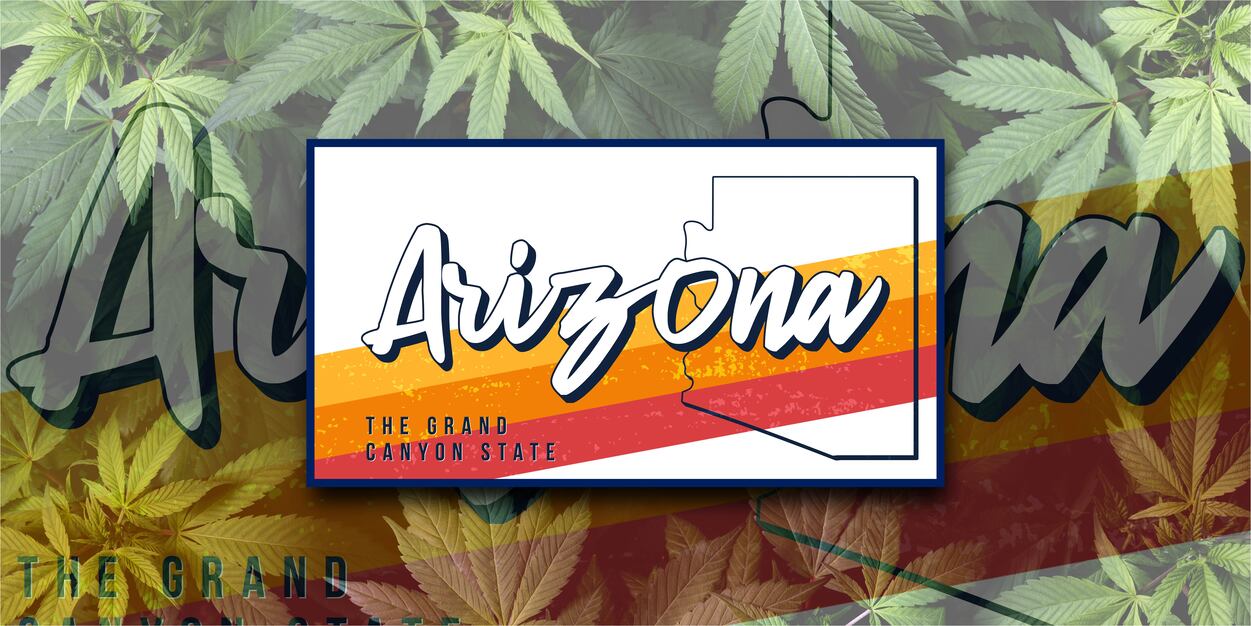The cannabis industry is booming, but staying compliant with Arizona marijuana packaging laws is critical for dispensaries and product manufacturers alike. As marijuana is legal for both medical and recreational use in the state, Arizona enforces strict guidelines to ensure consumer safety, product transparency, and responsible marketing.
This guide breaks down the current laws surrounding marijuana packaging in Arizona, helps you understand what’s required, what’s restricted, and how to stay compliant.
Legal Framework Governing Packaging & Labeling
Arizona’s cannabis packaging and labeling laws are set by the Arizona Revised Statutes (A.R.S.) and further defined through the Arizona Administrative Code (A.A.C.). These laws apply to both medical and recreational marijuana products.
Under A.R.S. § 36-2854.01, the state outlines general labeling and packaging requirements, including clear visibility of product details and health warnings. A.R.S. § 36-2860 restricts how marijuana products can be packaged and appear, including rules to prevent marketing to minors or imitating commercial food brands.
The A.A.C., specifically R9-18-310, goes further by listing exact labeling and packaging standards, while R9-18-309 governs the lawful sale or transfer of marijuana products, including how they’re labeled at the distribution point.
The Arizona Department of Health Services (ADHS) enforces these rules. Failure to comply may result in fines, license suspensions, or permanent license revocation.
Packaging Requirements in Arizona
Arizona has clear rules for how marijuana products must be packaged before sale. These rules are in place to protect consumers, especially minors, and ensure that products are stored and presented safely. They include:
Child-Resistant Containers
All cannabis products must be enclosed in child-resistant containers. This packaging must comply with federal standards set by the Poison Prevention Packaging Act (PPPA) and the Consumer Product Safety Commission (CPSC), ensuring that children under five years old cannot easily access the product.
This is a part of the child-resistant packaging requirements in Arizona, aimed at reducing the risk of accidental ingestion by minors.
Acceptable Packaging Materials
Arizona requires the use of safe, non-toxic materials that do not interact with or leak chemicals into cannabis products. Containers must also be opaque or concealed so the product is not visible to the consumer. This helps prevent misuse and supports proper storage.
Prohibited Packaging Practices
Arizona law bans packaging that targets or attracts children. This includes using cartoon characters, toy-like shapes, or designs that copy popular snacks or commercial items. These restrictions fall under prohibited imagery on Arizona cannabis packaging and are closely monitored by state regulators.
Labeling Requirements
Arizona requires cannabis product labels to include specific information to ensure consumer safety and regulatory compliance.
What Labels Must Include
Under Arizona cannabis labeling regulations, labels must display:
- The name and license number of the marijuana establishment
- The net weight or volume of the product
- A full ingredient list in descending order for infused products
- The strain name, batch number, and product form
- Potency information, including THC and CBD content labeling in Arizona
- The expiration date
Furthermore, you need the Arizona marijuana product warning statement mandated by state law, which says:
“ARIZONA DEPARTMENT OF HEALTH SERVICES’ WARNING: Marijuana use can be addictive and can impair an individual’s ability to drive a motor vehicle or operate heavy machinery. Marijuana smoke contains carcinogens and can lead to an increased risk for cancer, tachycardia, hypertension, heart attack, and lung infection. Marijuana use may affect the health of a pregnant woman and the unborn child. KEEP OUT OF REACH OF CHILDREN.”
Universal Warning Symbol
Arizona also mandates the inclusion of a universal cannabis symbol on all marijuana product packaging. This symbol must be prominently displayed to clearly identify items containing tetrahydrocannabinol (THC). The requirement ensures that consumers can easily recognize cannabis products, thereby reducing the risk of accidental ingestion, especially by children.
QR Code Compliance
Labels must include a scannable QR code that links to detailed product information, a requirement specific to quick response codes on Arizona cannabis packaging. This must include:
- Lab test results
- THC extraction method
- Manufacturing and harvest dates
- Warning about marijuana use during pregnancy
- Distribution and transportation history

Differences Between Medical & Recreational Labeling
While there’s a shared set of Arizona marijuana packaging laws across all cannabis products, there are key differences between medical and recreational labeling. These differences help consumers make informed choices based on their use and needs.
Medical marijuana products must include extra details that support patient use. This includes precise dosage information, which outlines how much THC or CBD is in each serving, and a clearly marked expiration date to ensure the product is used while still effective.
Recreational cannabis products, on the other hand, follow more standardized language. They are not required to display dosage per use unless the product is also sold for medical purposes. However, recreational labels still need to meet the same rules for safety, ingredient listing, and transparency.
Enforcement & Penalties
The Arizona Department of Health Services (ADHS) oversees compliance with cannabis packaging and labeling rules. The department regularly inspects licensed facilities and reviews packaging to ensure all products meet legal standards for safety, transparency, and consumer protection.
If a marijuana establishment fails to comply with Arizona marijuana packaging laws, it may face serious consequences, including:
- Civil penalties and fines for each violation.
- Product recalls requiring the removal of non-compliant items from retail shelves.
- Suspension or revocation of a business’s cannabis license, which can halt operations entirely.
ADHS treats violations seriously, especially those that could pose risks to public health or safety, such as mislabeled potency or packaging that appeals to children.
Best Practices for Staying Compliant
Cannabis businesses should take a proactive approach to complying with Arizona cannabis packaging laws and avoiding penalties. These practices help ensure ongoing compliance as regulations shift.
- Audit your packaging frequently to confirm it meets current legal standards. Regular reviews can catch issues before products reach the market.
- Train your team on new and existing regulations so that everyone involved in production, packaging, and sales understands the rules. Clear training reduces the chance of unintentional errors.
- Work with legal counsel or compliance experts who understand Arizona cannabis laws. Their guidance can help you avoid violations that could lead to product recalls or license suspensions.
- Monitor updates from the Arizona Department of Health Services, as the state may adjust labeling or packaging rules in response to public health data or legislative changes.
Final Word
As the cannabis industry matures in the Grand Canyon State, Arizona marijuana packaging laws play a vital role in shaping a safe and transparent marketplace. For businesses, staying compliant isn’t just about avoiding penalties; it’s about building trust with customers and setting a standard for quality.
Are you a cannabis business owner in the state of Arizona and unsure how to navigate packaging compliance? Custom 420 Supply is here to help! We invite you to reach out through our contact page to learn more about what we can offer your organization.
Frequently Asked Questions
Are there restrictions on the appearance of marijuana products and their packaging in Arizona?
Yes. Arizona prohibits packaging that appeals to minors, including the use of cartoons, toys, and product mimicry. Packaging must not resemble commercially available non-cannabis items and must be child-resistant and opaque.
What are the child-resistant packaging requirements for cannabis products in Arizona?
All cannabis products sold in Arizona must be packaged in child-resistant containers that are significantly difficult for children under five to open, but easy for adults to use. Reusable packaging must maintain child-resistance after repeated use.

